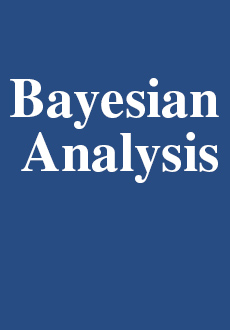Abstract
Spatial confounding between the spatial random effects and fixed effects covariates has been recently discovered and showed that it may bring misleading interpretation to the model results. Techniques to alleviate this problem are based on decomposing the spatial random effect and fitting a restricted spatial regression. In this paper, we propose a different approach: a transformation of the geographic space to ensure that the unobserved spatial random effect added to the regression is orthogonal to the fixed effects covariates. Our approach, named SPOCK, has the additional benefit of providing a fast and simple computational method to estimate the parameters. Also, it does not constrain the distribution class assumed for the spatial error term. A simulation study and real data analyses are presented to better understand the advantages of the new method in comparison with the existing ones.
Citation
Marcos Oliveira Prates. Renato Martins Assunção. Erica Castilho Rodrigues. "Alleviating Spatial Confounding for Areal Data Problems by Displacing the Geographical Centroids." Bayesian Anal. 14 (2) 623 - 647, June 2019. https://doi.org/10.1214/18-BA1123





